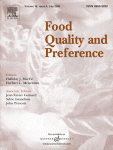
A high-profile food researcher who’s faced heavy criticism about his work has retracted the revised version of an article he’d already retracted last month.
Yes, you read that right: Brian Wansink at Cornell University retracted the original article from JAMA Pediatrics in September, replacing it with a revised version. Now he’s retracting the revised version, citing a major error: The study, which reported children were more likely to choose an apple over a cookie if the apple included an Elmo sticker, was conducted in children 3-5 years old, not 8-11, as the study reported.
Although Wansink told BuzzFeed he asked the journal to retract the paper, Annette Flanagin, Executive Managing Editor for The JAMA Network, told us the editors requested the retraction:

 Journals have posted two corrections alongside papers by
Journals have posted two corrections alongside papers by  A Cornell food researcher who has pledged to re-analyze his papers following heavy criticism of his work has issued a major correction to a 2005 paper.
A Cornell food researcher who has pledged to re-analyze his papers following heavy criticism of his work has issued a major correction to a 2005 paper. When a journal discovers elementary design flaws in a paper, what should it do? Should it retract immediately, or are there times when it makes sense to give the researchers time to perform a “do-over?”
When a journal discovers elementary design flaws in a paper, what should it do? Should it retract immediately, or are there times when it makes sense to give the researchers time to perform a “do-over?”